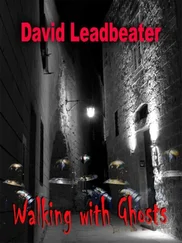On the far right of the closet hang four white shirts and three pairs of brown pants, her work clothes. The supermarket — the only one in town — loans the employees a logoed apron for each shift. The block lettering reads, Holiday.
An athlete in high school, Kristen was all-district in basketball and volleyball, and she’s considered asking her old basketball coach if she might serve as an assistant, maybe one day take over the volunteer job. She thought about college until the nerves and lack of money became real, so she took the checkout job after graduation and promised herself that she’d earn an associate’s degree from Lassen College over in Susanville, but already she can’t imagine a future in which she’ll start classes. She doesn’t love or hate her job; it’s just her life now, and most days she doesn’t allow herself to dream up alternatives, save maybe the coaching gig in a couple years. If she keeps out of trouble, she can get a fifty-cent raise every six months.
After work one evening Kristen grabs her sleeping bag and drives out to a campsite at Domingo Springs. When she pulls up, her two girlfriends are setting up a tent near a stand of dead trees, and one of them holds up and shakes a bottle of rum. Experienced outdoors, Kristen knows her friends have picked the worst possible October location. There’s not much protection from the breeze, the bathrooms are upwind, and the comforting springs are a good fifty yards away, but Kristen cares little — this is how she relaxes. Local places like Domingo Springs, Willow Lake, Drakesbad — the trees, clean water, Mount Lassen nearby — form the limits of the world she knows and support her personal edict: Why go somewhere else when you’re happy where you are? The campsite is only twenty minutes from town, but far enough. She drops her sleeping bag and backpack by the nearly assembled tent and heads off to find dry wood for the fire.
Newly hired, Marcus drives his Forest Service truck up to the payment box at the campground. He opens each numbered slot and marks his camp sheet. His uniform almost matches the light green truck. He drives ten miles an hour through the one-way maze of campsites, each with a crusty barbecue grill and picnic table. Some of the campers haven’t paid, but it’s mainly locals this time of year, and he ignores their five-dollar sins and motors along with the window open, returning waves and stares. He enjoys it out here — he recognizes a few of the people, and they treat him with respect.
As he rounds a curve he sees Kristen’s car and the three girls huddled around a fire too large for the pit. The truck stops, and before he can convince himself otherwise he is halfway to them, kicking at pine needles along the way. One of the girls tosses the bottle at the tent, only to have it slide down the zipped-up screen entrance. He attended school with all of them and expects them to call his name in relief, but it’s too dark and all they make out is his uniform. One of Kristen’s friends has hit on Marcus a couple times, and he’s disappointed she’s among the group.
Kristen, not quite drunk, stands. She has to focus hard to recognize Marcus, but when she does she says his name, and his shoulders relax. The girls invite him to join them and Kristen fetches the bottle, which Marcus accepts.
He says nothing about their payment, nothing about the tall fire so close to the dry trees, but he does talk, sparingly at first. Yes, he works for the Forest Service now. He patrols campgrounds throughout the area. He’s self-deprecating and fit, and soon chugging the bottle. One of the girls stares at him and smiles.
Marcus avoids Kristen’s eyes, and for the first time she wants him to look at her. They all laugh and talk about high school, and Kristen tells a story about a girl fight she thinks is new to him, but halfway through she remembers that Marcus was there. She asks him why he didn’t interrupt her, why he’s so quiet, but he just nods and stares at the fire. She talks to the other two girls now, recalling the summer play, breathless and stunned, this Marcus a genius. “The fucking wheat! ” she says. She describes the farmer, the silence, the frantic tension, the craziness in Act III.
Marcus glances over. He can’t feel his hands.
It’s eleven-thirty when one of the drunk girls asks Marcus if he has to report back. He’s an hour late, and they’ll think he fell asleep, or worse. Marcus tries to stand up straight, and his legs take a moment to support his weight. When he starts the truck, the fuel gauge shows empty and the orange light is illuminated. He’s excited and overwhelmed, but he keeps the truck on the road while scanning for deer. After he coasts into the Forest Service station lot on fumes, he picks up his phone. No missed calls.
Late morning in early February, and the Forest Service supervisor tells Marcus they’re letting him go. He doesn’t argue, but the supervisor lists the reasons besides overmanning: sleeping on the job, failing to prevent the tree fire last fall at Domingo Springs, having an ambivalent attitude. She tells him that she thinks the mill has started hiring again.
Marcus senses his own smile. It’s been two months since he started seeing Kristen, and although there have been no promises, they meet up regularly and have agreed to get together later that night.
The station is a mile out of town, two to his apartment, and Marcus walks back in the dirty snow. He has yet to save up for a car, but an old yellow motorcycle stands for sale in his neighbor’s yard for a hundred and fifty bucks. He stays off the shoulder of the road — the last level inches before the mounded snow berm — and passes the airport. To his right are a couple single-prop jobs tied to the tarmac and a refurbished WWII fire bomber that’s about to take off to hit an incredibly early blaze far south in the canyons. Marcus has heard about the winter fire, but there’s no smoke to prove it’s real.
He passes a worn-down storage shed and a decent Mexican restaurant — the sixth restaurant in the doomed location — and he raises his arm to slap the green city-limits sign and reads the familiar POP 2200 and ELEV 4525. A couple years ago rumors floated that they were taking a new census, but no one ever came to his family’s door. Then, without notice, the sign changed: the town lost twenty-four people. No one knew who the departed were. The county didn’t repaint the elevation, and the last 5 has almost faded away completely.
Marcus strolls past the entrance to the mill, by the red barber shop/laundromat combo, by the Pine Shack Frosty, and he smokes a cigarette as he gets to the Beacon gas station. The smoking is a recent habit. He can’t get enough of the smell on his clothes and in his apartment. He doesn’t cough at all, and he jogs to equal everything out. Kristen won’t touch cigarettes, but she keeps quiet about the smell when she heads over to his place.
Marcus takes a drag, and from the gas station door someone appears dressed in camouflage, and for a moment Marcus’s world explodes and he projects in flashes— Wintric, home, hero, breakup, Kristen, empty, a gun —but the man turns and he sees that he’s not Wintric, just a no-name hunter returning from a morning out. Marcus’s blood runs back to his legs and his heart settles. It’s at this moment that he imagines, then wishes for, an accident wherever Wintric is— Afghanistan? Fort Carson? At first thought it’s not Wintric’s death, just disfigurement, a lost hand, leg. But no, he thinks, it has to be his face, turned unrecognizable. He pictures a mash of swirled flesh, but he wonders if there’s too much sympathy and attention in that, no matter how repulsive. Having heard about ill-equipped Humvees from his uncle, Marcus considers an IED ripping Wintric in half from the bottom up — an instantaneous death. There’s sympathy there, he thinks, but it won’t last.
Читать дальше












